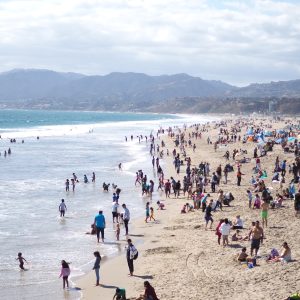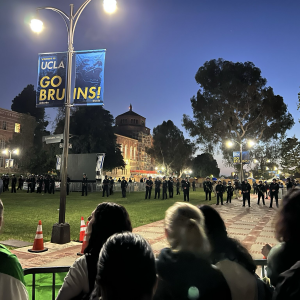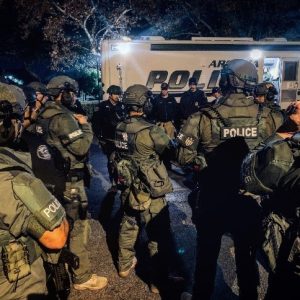 View Winners →
View Winners → Arcadia’s Rainy Day Savings Address Budget Deficit
Though an earlier look at the budget for the last fiscal year showed the city budget to be in a large deficit, city staff reported Tuesday that the budget would require just a fraction of the money from the reserve fund than previously expected for 2008-2009.
In an update to the Council at Tuesday night’s meeting, staff was happy to report that instead of the $500,000 previously approved for use of the reserve fund, the city would need to use only $54,891 – 0.12% of the general fund budget of $45 million, said Hue Quach, director of the administrative services department.
“That really essentially came from a lot of departmental cuts that were implemented,” Quach said. “We did a great job in terms of watching the budget. “
The decrease in the deficit also comes from a discount of $251,000 the city received from a prepayment on its annual retirement program for paying in advance, which is essentially part of the budget, he said.
The staff also updated the overall revenue projection for 2009-2010, which has a shortfall of about $960,000. Additionally, the adopted budget projected $286,000 to be used from reserves – a total shortfall of $1.25 million for next year.
To address the deficit, staff provided three different options for the council to consider in order to balance the budget.
The council unanimously voted to defer a street rehabilitation project scheduled for the spring, which gives the city staffers time to monitor the economic situation, Quach said.
“It’s a good option, because those projects don’t typically take place till April or May, and that gives us time to continue to monitor the economic situation,” he said. “Of course, if the economy improves and there’s some signs that it is slowly improving that would essentially mean it works itself out.”
If conditions don’t improve, the option still gives staff time to bring the data back to the council to reconsider in February or March, he said.
The other option included using the remaining $450,000 of reserves from the 2008-2009 fiscal year, in addition to funds that had already been approved from reserve fund use and projected revenue from a user fee increase adopted in August.
Making further budget cuts was the final option, which would mean cuts to services that our community are accustomed to and at this time council did not consider as there are other viable options. This option would involve continuing with the street rehabilitation, he said.
“Essentially, the option (chosen) provides time needed to monitor the economy,” Quach said. “It’s a nice measurable approach so were not overreacting to something that may not be needed.”
The city has also saved on vacancies and other contract negotiations, as well as a number of cuts already made, he said.
“What is remaining on this list are critical services,” Quach said. “However, the underlying understanding is if the economy gets bad, then these are items that must be reviewed. Its not something the council is considering but option is available.”
Quach also said although the staff recognizes that there are still many concerns and the unemployment rate is still high, there are signs that the economy is slowly improving.
“Overall the city’s finances are in great shape and that’s really attributed to the councils decisions they made over the past years, and their conservative approach to savings for a rainy day,” he said.
According to Mayor John Wuo, the council sees delaying the street rehabilitation project as a way to buy time until the economy improves.
“The option (chosen) to me is almost a no-brainer,” Wuo said. “The reason we’re doing that is because the entire state and nation is buying time in the hopes that the economy gets better, that the housing industry gets better and that people have money they can spend money on travel and sales tax purchases.”
The option allows for the most flexibility, said Mayor Pro-Tem Peter Amundson.
“It allowed us to return $450,000 that had been authorized previously from reserves to be returned to reserves,” he said. “It allows us to fill two police positions that are waiting to be filled. Public works felt that deferring slur seal of the roads could be done without negative impact on safety and driving conditions.”
“We all agree that we can’t spend more than what we take in,” Wuo said. “Compared to many other cities Arcadia is in a very good position.”











































































































